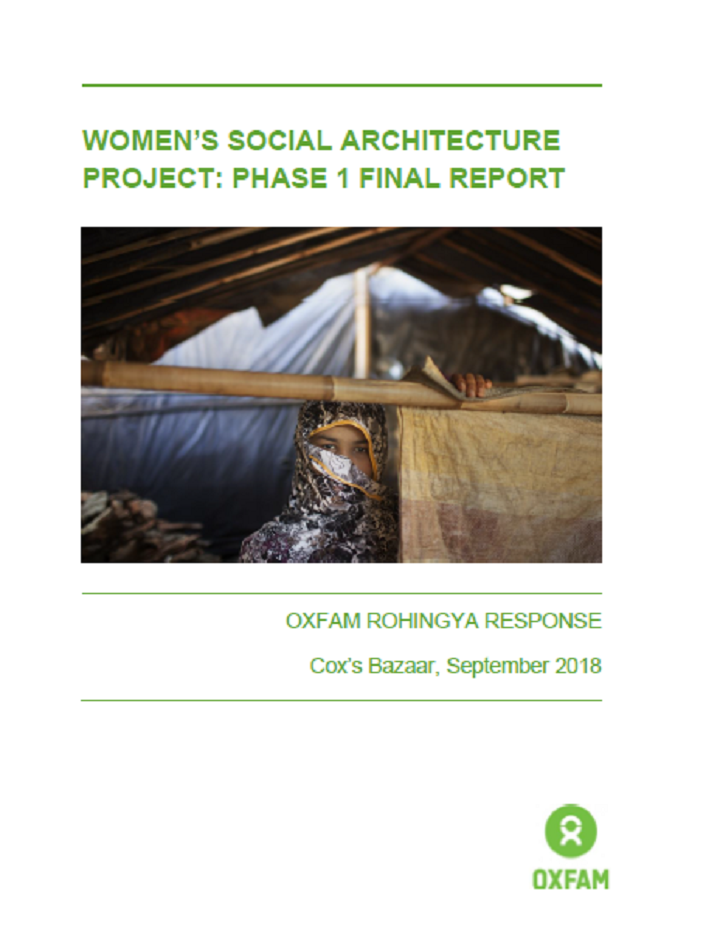
Published in: 2018
Pages: 29
Publisher:
OXFAM
Author:
Farrington, M.
Uploaded by:
SuSanA Admin
Partner profile:
common upload
782 Views
6 Downloads
In May and June 2018, Oxfam undertook research with Rohingya women and adolescent girls living in Cox Bazar refugee camps, focused on the barriers and enablers of using WASH facilities in the camps. The research brought two female architects to work with women and girls to adapt the design of existing facilities, and to design new facilities to meet their needs. From discussions with women and girls, the main issues relating to WASH infrastructure were related to feelings of safety, privacy and dignity, with the number of facilities and the need to share with neighbours also being raised that things that made using the facilities difficult. The architects were given a creative brief to look for innovative designs and approaches to meet women’s needs and worked to factor in the suggestions they developed with women into their designs. The first drafts of their designs can be found within this document. Validation meetings within women continue to determine how well their views have been represented in the designs. Furthermore, the project looked to examine the enabling environment of the camps, their geography and of the WASH sector itself and the barriers and enablers that NGOs also found when trying to incorporate the views of women and girls into their project planning. A joint workshop between WASH, Protection and Gender representatives from the humanitarian community in Cox Bazaar will be held on 9th August. The aim of the workshop is to develop joint sectoral recommendations in response to the research, and realistic action plans for implementing these.
Bibliographic information
Farrington, M. (2018). Women's Social Architecture Project - Phase 1 Final Report. OXFAM
Filter tags
East Asia & Pacific English Gender transformative WASH Women's rights & representation and empowerment














